It is with great joy that the Visual Arts Council announces the nominations for the Icelandic Art Prize awards for 2024. The award will be presented for the seventh time on March 14th at Iðnó, Reykjavík.
The award aims to recognize outstanding Icelandic visual artists, as well as artists residing in Iceland, and bring attention to outstanding initiatives in the field of contemporary art.
Prizes will be awarded for Artist of the Year and the Motivational Award. In addition, special recognitions will be awarded for Publication on Visual Art, Retrospective of the Year, and Group Show of the Year. A special jury decides these awards. Finally an Honorary Award is awarded for lifelong artistic achievement, bestowed by the Visual Art Council.
Nominations for the Artist of the Year 2024
Four artists are nominated for the award Artist of the Year and the recipient will be awarded 1 million krona.
Amanda Riffo is nominated for her exhibition House of Purkinje in The Living Art Museum
Amanda Riffo (b. 1977) is a French-Chilean artist who has been based in Reykjavík since 2012. She graduated from the École nationale supérieure des beaux-arts in 2002 with an MA in Fine Arts. Her works have been exhibited in Europe, South America and Japan, where she was an artist-in-residence in 2012 and 2013. Riffo has since participated actively in the Icelandic art scene with solo exhibitions at the artist-run space Open in Reykjavik in 2018 and Skaftfell in Seyðisfjörður in 2019. She has also participated in various group exhibitions, including Sequences XI, the artist-run International Biennial in Reykjavík, in 2019.
House of Purkinje cleverly synchronises many different narratives, from epistemology (theories of perception) and optics, through her own experience of the patchwork economy of the arts, as Riffo casts a critical eye on contemporary art and its mechanisms. Not only does Riffo’s exhibition reflect her talent for combining dissimilar topics into simultaneously similar and distorted objects, but the whole exhibition is a twist on itself, a depiction of every artist’s nightmare: running out of time when installing their exhibition. Thus, the humour in Riffo’s work is especially noteworthy, making those working in the art field cry with laughter; the execution of each object so effectively and convincingly playing a part in her staging of an “unfinished” art exhibition.
The jury considers Amanda Riffo’s House of Purkinje a uniquely fascinating exhibition that appears at first as an exhibition that is not-quite-ready for its opening. But which, upon closer look, reveals each object in the chaotic, worksite-like space to be an artwork that reflects the challenges and the labour conditions artists face in their work within the field in a brilliant way. This shifts the reality of the exhibition and suddenly makes each object a staged version of themselves, as if on a film set.
Arnar Ásgeirsson is nominated for his exhibition Cleaning Methods at Neskirkja Church
Arnar Ásgeirsson (b. 1982) graduated with a BA in Fine Arts from the Gerrit Rietveld Academy in Amsterdam in 2009 and an MA in Fine Arts from the Sandberg Institute in Amsterdam in 2012. Since graduating, Arnar has exhibited his works both in Iceland and abroad. He has been an active participant in the artist-run studio and exhibition space Open in Reykjavík. Arnar’s work is diverse in subject and method—ranging from sculptures to installations, video works and drawings—for which he takes well-known phenomena or objects and places them in a new context.
Cleaning Methods is loaded with multilayered references to art history, from high fashion icons to everyday objects such as toilet cleaners, converging the presentation of the perfect male body with the church’s gospel of cleansing and absolving. The exhibition is installed in the church’s congregation hall and tailored precisely to the context of the exhibition space. The concept is distilled into nine sculptures, bottles filled with fusions of simultaneously familiar and foreign contents, colours and shapes. Each sculpture is a small plastic bottle imitating the classical male sculptures of Ancient Greece and Rome, the symbols of powerful but bruised bodies cast in plastic, modernity’s material. Every sculpture’s colour scheme then represents certain products. Namely familiar, domestic cleaning products that we know well without needing any particular labels. A clear bottle with a red cap filled with grass-green liquid. Perhaps the works’ meaning is most apparent in the bottles’ contents: the soap that cleanses. Which impurities do we need to combat? What does it take to obliterate contaminating and poisonous elements?
The jury finds that in Cleaning Methods, Arnar successfully merges references and connotations from dissimilar fields in a surprising and clever manner, bottling up the contemporary discourse on stereotypes and ideas ripe for reconsideration.
Geirþrúður Finnbogadóttir Hjörvar is nominated for her exhibition Index in Ásmundarsalur
Geirþrúður Finnbogadóttir Hjörvar (b. 1977) finished her degree from Rijksakademie van beeldende kunsten in Amsterdam in 2008. She graduated with an MFA in Fine Arts from Konsthögskolan in Malmö in 2005 and a BA in Fine Arts from the Iceland University of the Arts in 2002. She lives and works in Reykjavík and has exhibited extensively both locally and internationally.
Index revolved around the financial sector and its aesthetics. Geirþrúður exhibited two- and three-dimensional works, referring in their look, subject matter and colour scheme to aesthetics often used in the 1980s for the design and presentation of economic graphs. As in her other recent exhibitions, Geirþrúður seeks to generate a strong undercurrent of social critique, which she utilises to reflect on the interpretations and connections between ideological systems and objects, as well as the semiotic factors that create the framework around our experiences of the invisible systems forming the main building blocks of our daily existence. The sculptures in the exhibition were made of cold metal, plastics and glass, formed by machines rather than the human hand. Their material and form could be compared to 20th-century modern art and it could likewise be said that their form is in dialogue with the history of the exhibition space, Ásmundarsalur, and the legacy of artist Ásmundur Sveinsson, who built it as his home and studio.
The jury finds that in her exhibition, Index, Geirþrúður creates her own niche in the Icelandic visual art scene in the unique way she connects well-known imagery and aesthetic motifs, along with the questions she poses about the larger significance of the objects around us.
Ólöf Nordal is nominated for her exhibition Blird in Ásmundarsalur
Ólöf Nordal (b. 1961) studied at The Icelandic College of Arts and Crafts from 1981-85 and subsequently at the Gerrit Rietveld Academy in the Netherlands in 1985. She graduated with an MA from Cranbrook Academy of Art, Michigan, in 1991 and completed an MFA in Sculpture from Yale University 1991-93. Ólöf has had an extensive career. Her work has been exhibited around the world, as well as in the most prominent art museums and galleries in Iceland. Her works in the public space have not only garnered attention but also transformed the profile and status of sculpture in the contemporary urban environment of Iceland.
Folk traditions and the Icelandic nation’s cultural legacy are recurring motifs in Ólöf’s work. These motifs saturate the exhibition Blird while showcasing the artist’s penchant for storytelling and the artistic freedom with which she approaches these ideas. The exhibition’s four sculptures are cast in bronze and perched high on their pillars in the space. As the exhibition title suggests, the figures are some sort of human/bird hybrids. They are familiar but foreign, timid in the way they are perched, but likewise with their head held high, simultaneously subdued and grand. This tug-of-war within the exhibition cuts to the core of Ólöf’s works, where a mirror is held up to the nation’s narratives and the storytelling traditions of the past. The work is in dialogue with another of Ólöf’s recent works, Mannfuglar (2022), installed in the garden at the Móberg nursing home in Selfoss, South Iceland. The text-work that welcomes the audience refers, as if part of some game, to a blird that sits “chirping drivel and dirrd”. The exhibition’s four figures are granted voices through an audio work that resounds through the exhibition space. Just like the sculptures themselves, the sounds are at once human and animalistic.
In the jury’s opinion, Blird reflects Ólöf’s dynamic mastery of sculpture, as her four-part installation creates a powerful narrative, a stirring experience, that brings the audience into an undefined domain of the delicate and the grotesque in nature, humanity’s connection to it and our own imagination.
Nominations for the Motivational Award 2024
Three up and coming artists are nominated for the Motivational award and the recipient will be awarded 500 thousand krona.
Almar Steinn Atlason is nominated for his exhibition Almar in the Tent at the Svavar Guðnason Art Museum in the town of Höfn, Hornafjörður
Almar Steinn Atlason (b. 1992) graduated from the Department of Fine Art at the Iceland University of the Arts in 2018. He caught the public’s eye in 2015 with a memorable performance as a student with the endurance performance Almar in the Box, where he dwelled naked in a glass case indoors while being streamed live online. The performance set the tone for what was to come in Almar’s art practice. Using diverse mediums and methods, Almar’s works often raise questions about the role and image of the artist and about what can be considered art or where art can take place.
The performance and exhibition Almar in the Tent took place late in the summer of 2023 in the southeast of Iceland as Almar followed in the footsteps of painter Ásgrímur Jónsson (1876-1958). In 1912, Ásgrímur travelled by ship to Hornafjörður and lived for a month in a tent on top of a hill in Hrossabitahagi and painted watercolours. Over a hundred years later, Almar repeats this act, placing himself in the same spot, but this time in a completely changed environment creating plein air paintings. Where once was a pasture with a view towards all directions there is now a golf course and an outdoor recreational area in the middle of the town of Höfn. Almar dwelled for a month in the tent and painted both the immediate surroundings and the nature of Hornafjörður, recording the same views, as they appear today, in multiple paintings. In the exhibition at the Svavar Guðnason Art Museum, Almar’s paintings were presented alongside works by other Hornafjörður-based artists, some of which were influenced by Ásgrímur’s visit at the time.
The jury finds that with his performance and exhibition, Almar in the Tent, Almar manages in a playful but convincing way to address not only Icelandic art history but also Hornafjörður’s local history, both in regard to nature and the life of the locals, which translates into a broader contemporary context.
Brák Jónsdóttir is nominated for her exhibition Possible Oddkin in the Nordic House’s Greenhouse in Reykjavík
Brák Jónsdóttir (b. 1996) graduated with a BA in Fine Arts from the Iceland University of the Arts in 2021. Since graduating, she has initiated various visual art projects and exhibited in a number of art museums, festivals and exhibition spaces around Iceland and abroad.
On display at Possible Oddkin were sculptures created from natural minerals, tree bark and aluminium. Both in the artworks and the curator’s text there is a sense of humour as well as more serious musings about the connection between body, soul and environment. The placement of the works in the Nordic House’s Greenhouse also plays a pivotal role in Brák’s installation. In her choice of location, she directly references human-made environments that create prime conditions for sowing, nourishing, nurturing and growth. Curator Odda Júlía Snorradóttir’s text refers to something odd occurring here, some unfolding of several beings whose appearance is a mystery until they are fully grown. In that uncertain, intermediary situation, the possibilities of Brák’s sculptures and the vivid imagery of her work can be found. The becoming meets the ancient, the connection often being Brák’s physical approach to her sculptures, as her performances tend to occur through her touch upon— or a sort of dance with—her sculptures.
The jury finds that Brák’s sculptures and her performative connection with many of them brings an interesting quality to the visual arts. They fuse many of the more pressing contemporary questions about the connection between human and nature, growth processes, and the role of imagination in creating realities at the conjunction of the possible and impossible.
Sara Björg Bjarnadóttir is nominated for her exhibition Two Infinites Between 1 and 3 at the Akureyri Art Museum
Sara Björg Bjarnadóttir (b. 1988) graduated with a BA from the Department of Fine Art at the Iceland University of the Arts in 2015. Since graduation, she has exhibited her works in Iceland and participated in group exhibitions in Athens, Berlin, London, Los Angeles and Vilnius.
In her solo exhibition exhibition Two Infinites Between 1 and 3 at the Akureyri Art Museum, Sara Björg creates an uncanny place that seems to exist outside of time, space and reality. With savvy decisions, such as closing the usual entrance to the exhibition space and playing with the space’s colour and lighting, she creates a place in-between that recalls bodily connections of liquids. The works were delicate and appear to be made with great precision, but the exhibition also included meditative works that bring viral social media videos to mind. These were successfully incorporated into the space and created an immersive experience of something that is indescribable yet embodies what has been mentioned in the enigmatic descriptions on offer within the exhibition: a reflection of limitless introspection, watery connections of bodies, spaces, feelings and situations that might soon slip away from definitive and concrete descriptions. Sara Björg’s works dismantle the viewer’s traditional, physical experience of being in the exhibition space and utilise boundaries, unconventional materials and forms, mixed with references to nature, in order to create a singular connection to the space.
The jury finds that Sara Björg’s exhibition explores the interaction between physical impulses and the critical mind in intriguing ways. Her sense of form and material, as well as her relation to the specificities of the space, are reflected in a dynamic way in her interactive installations.
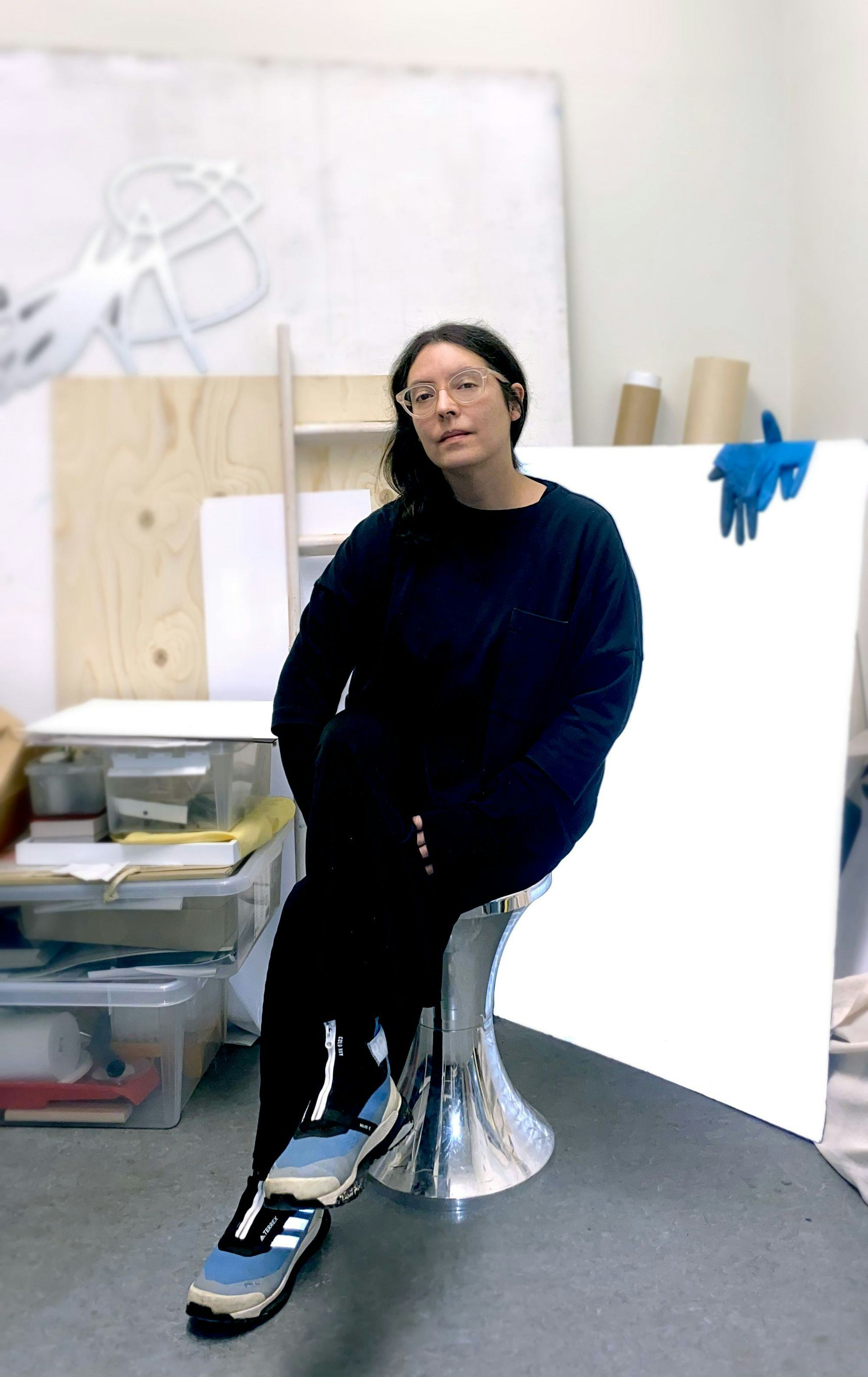
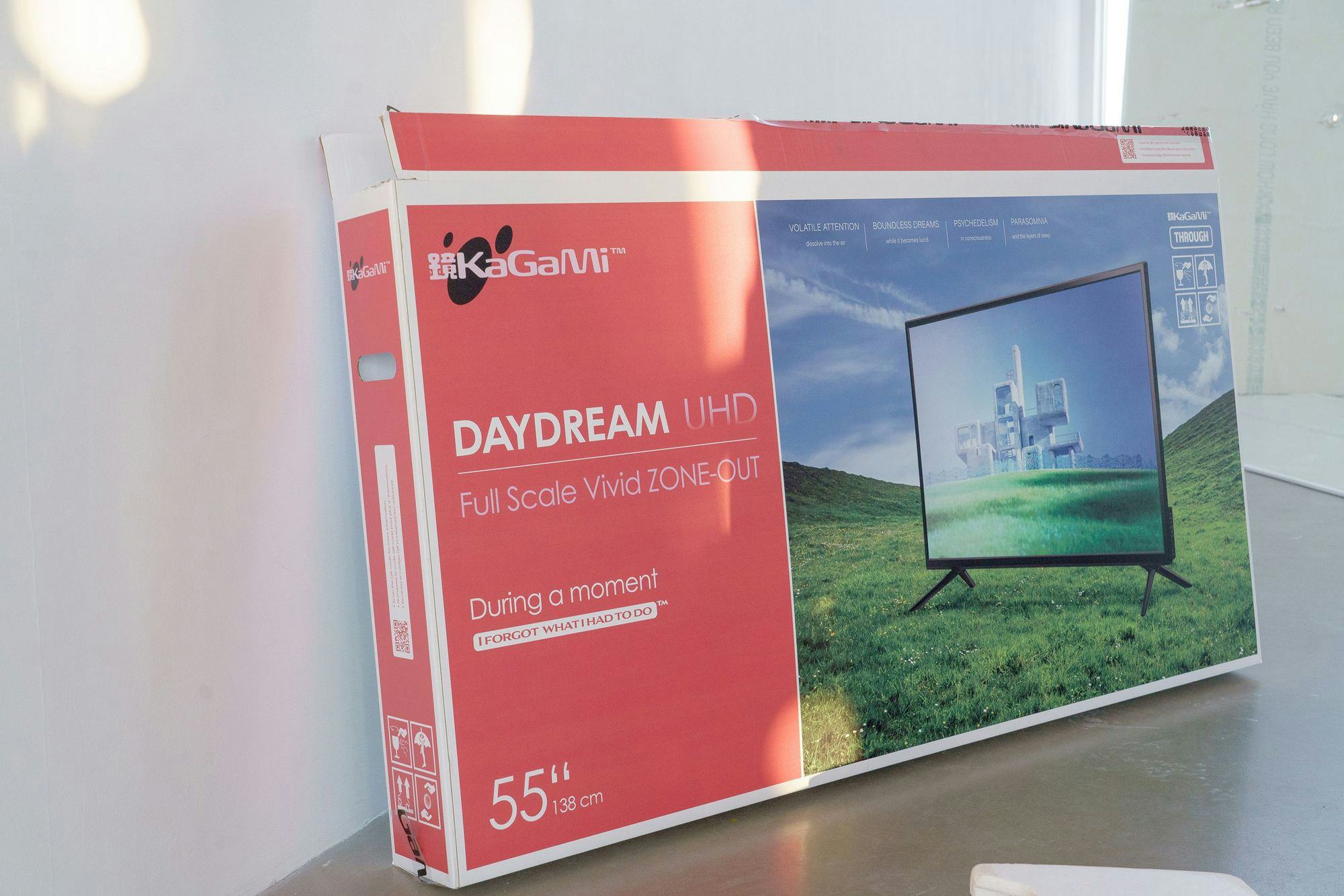
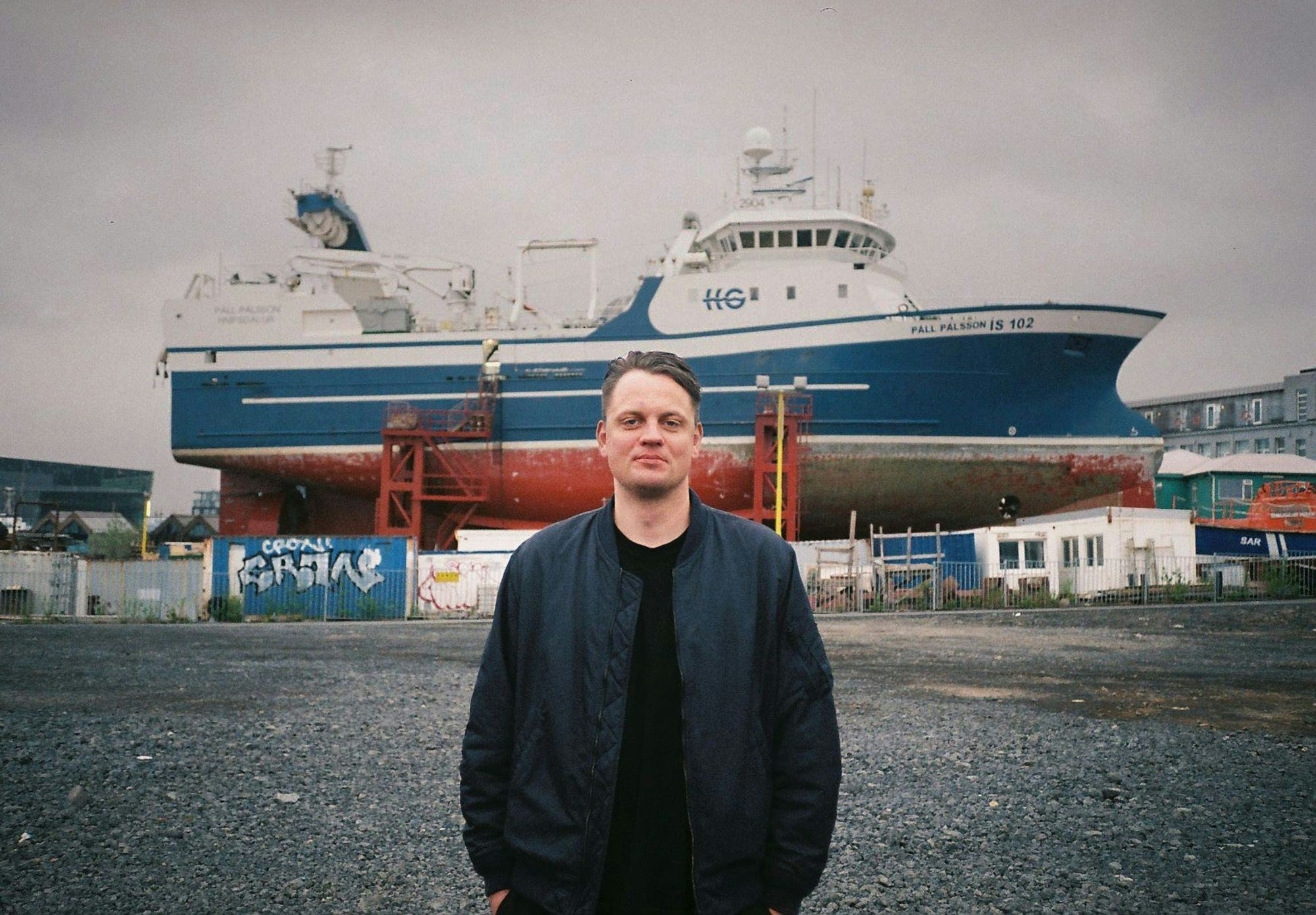
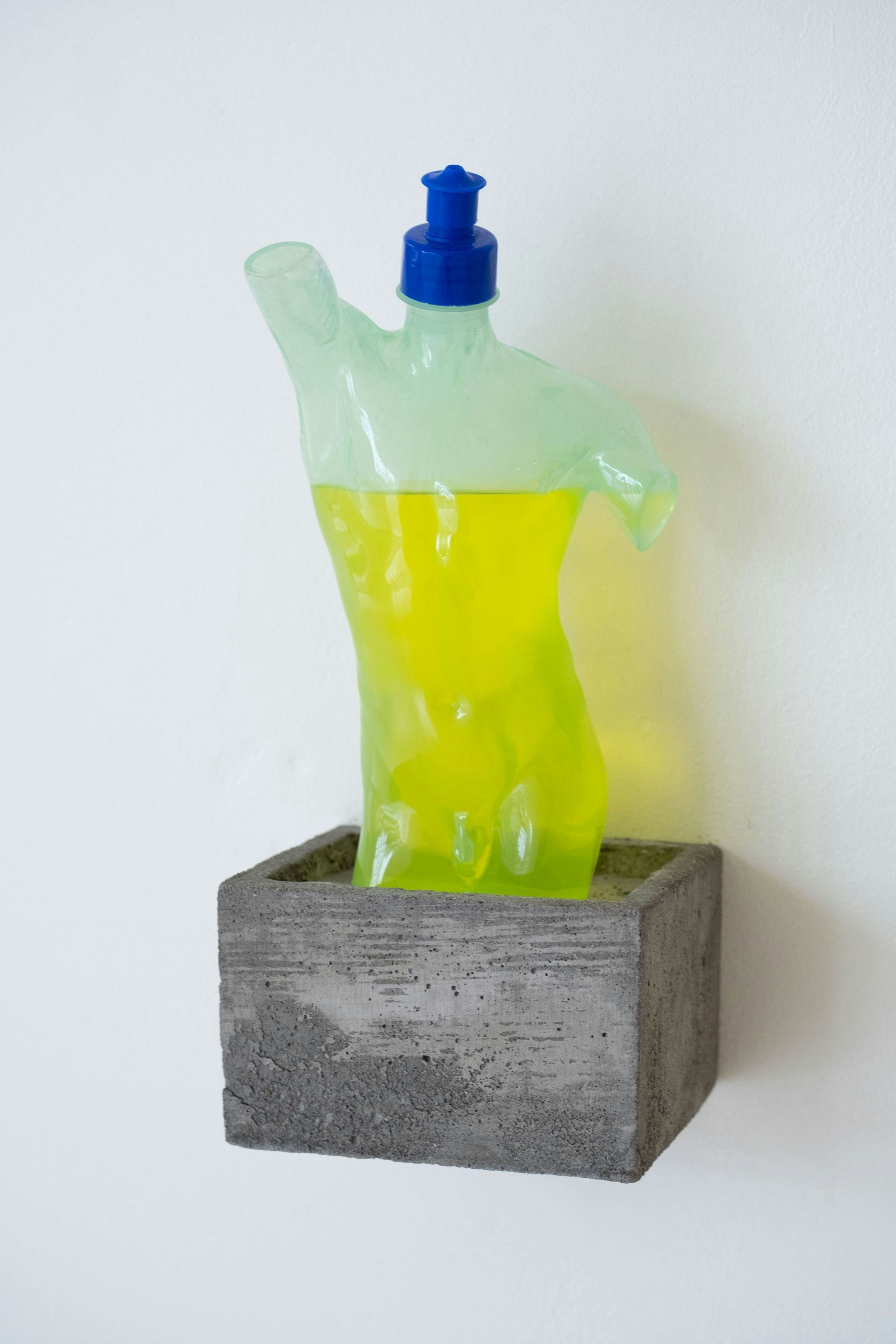
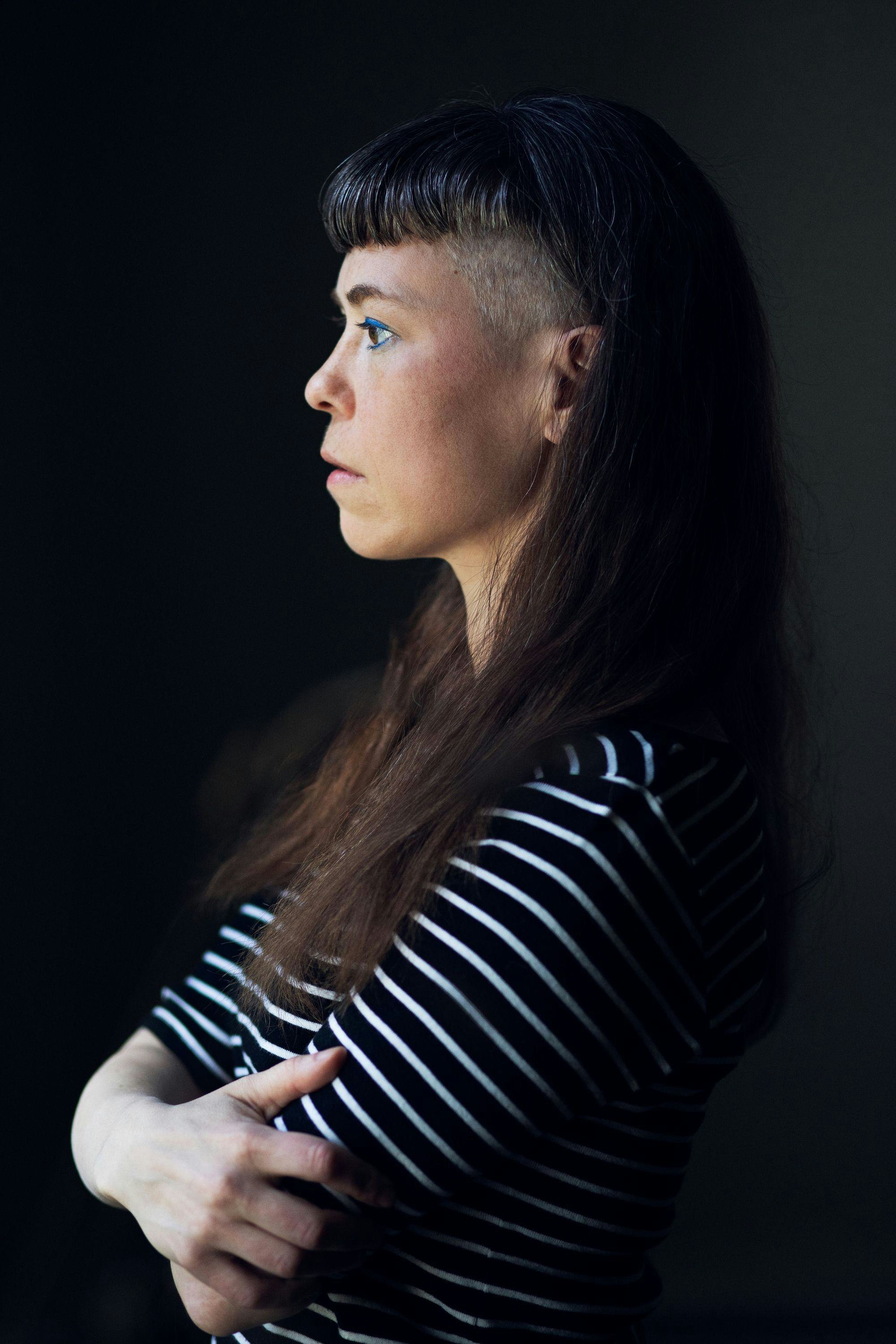
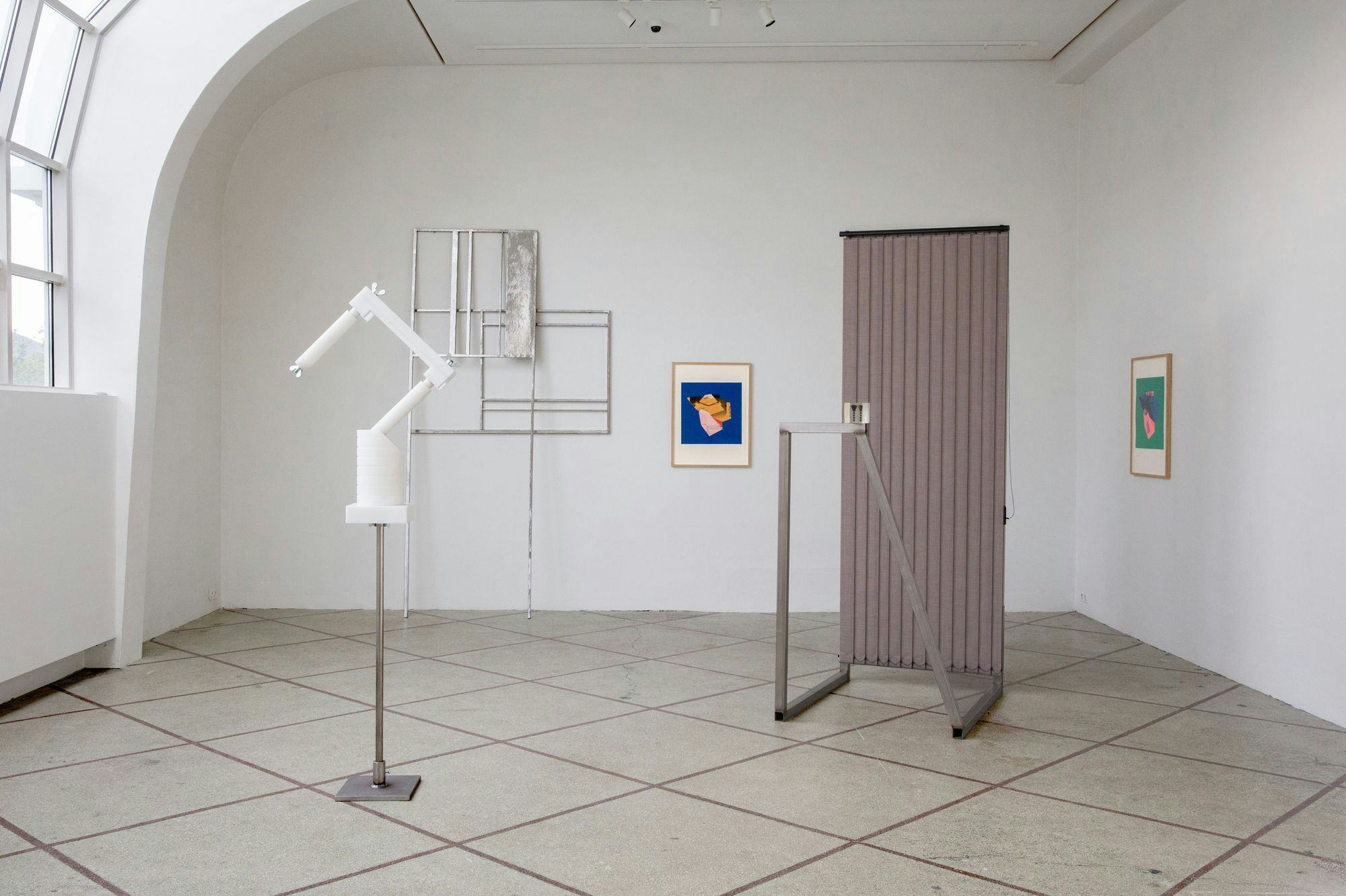
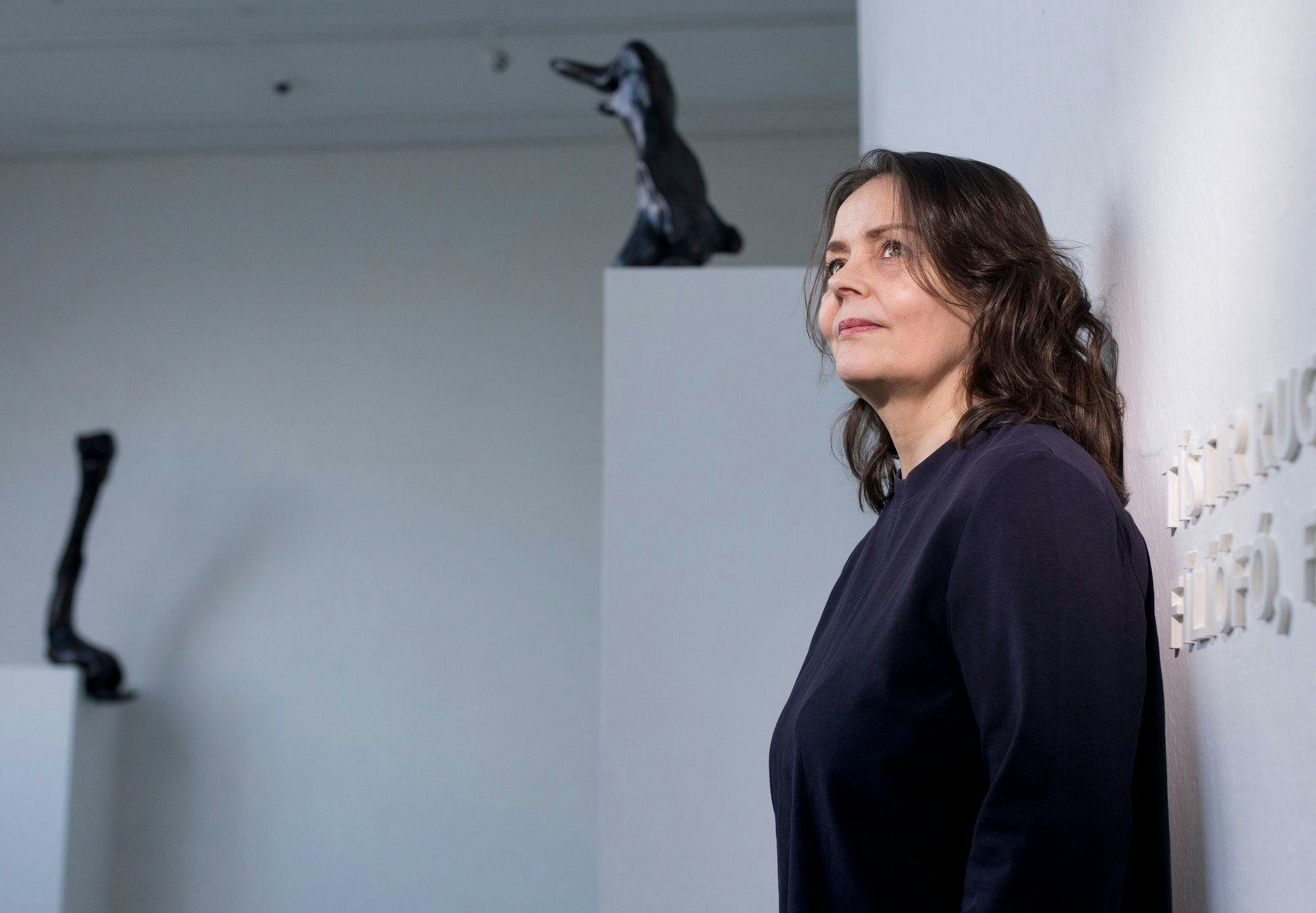
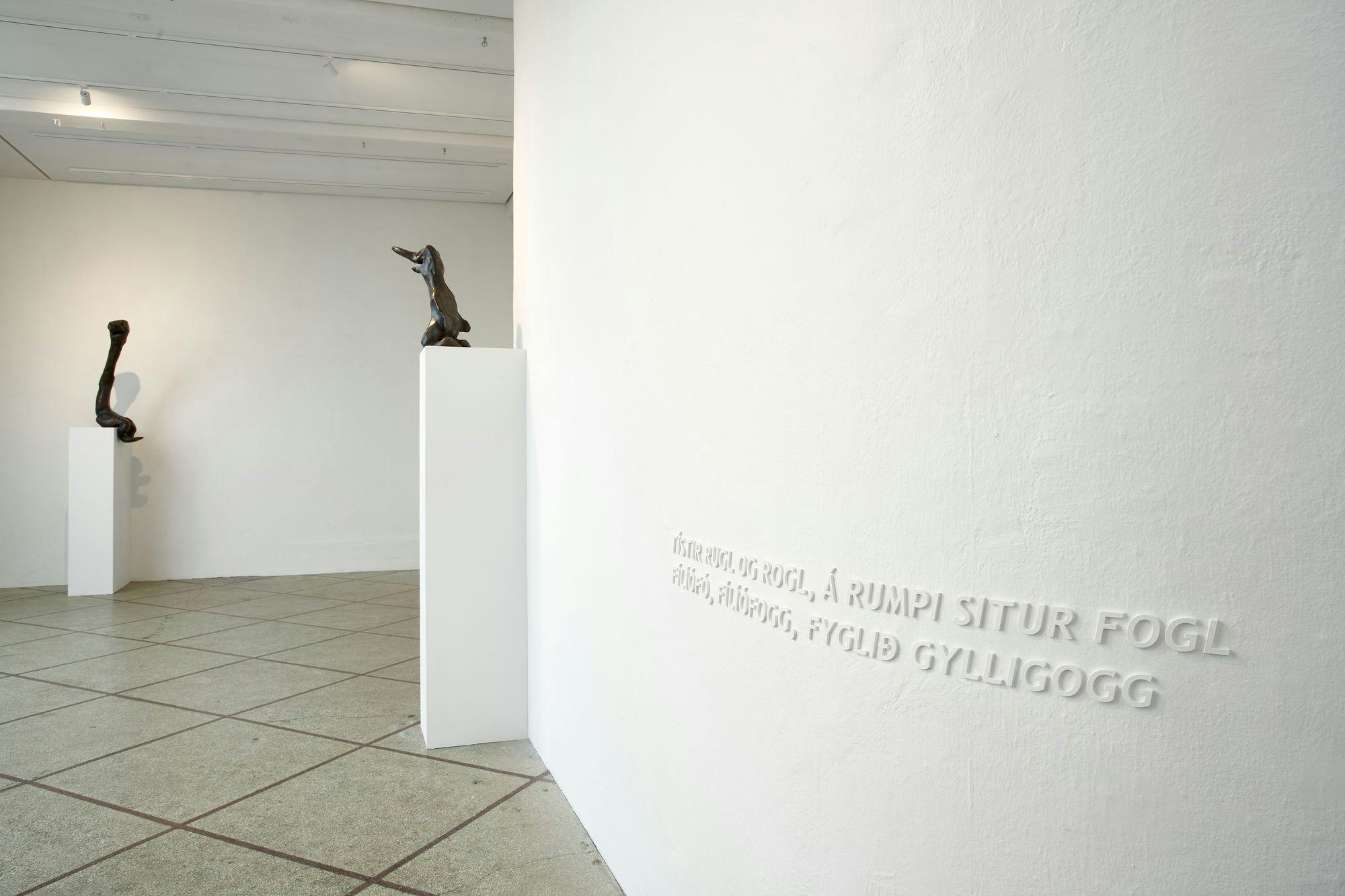
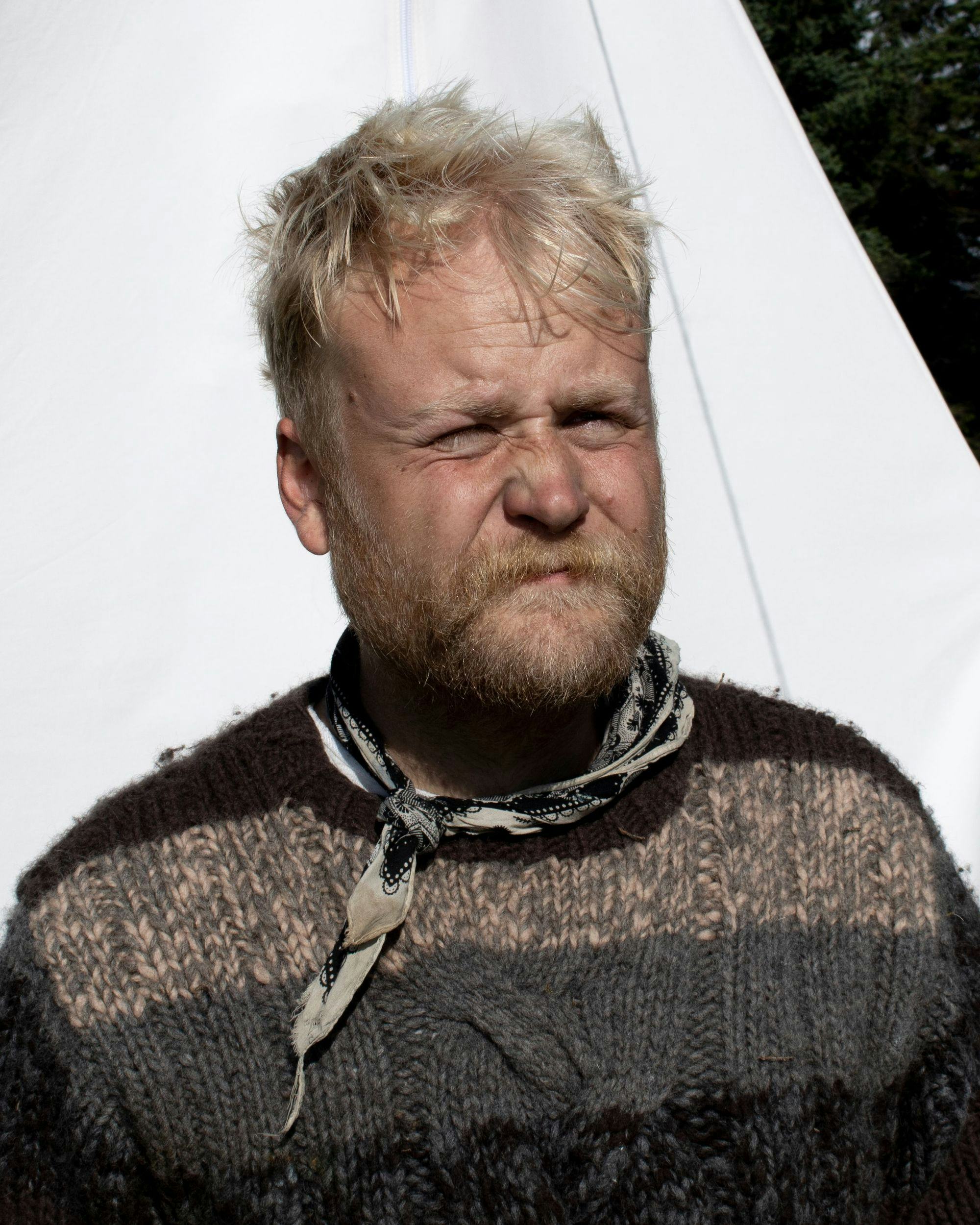
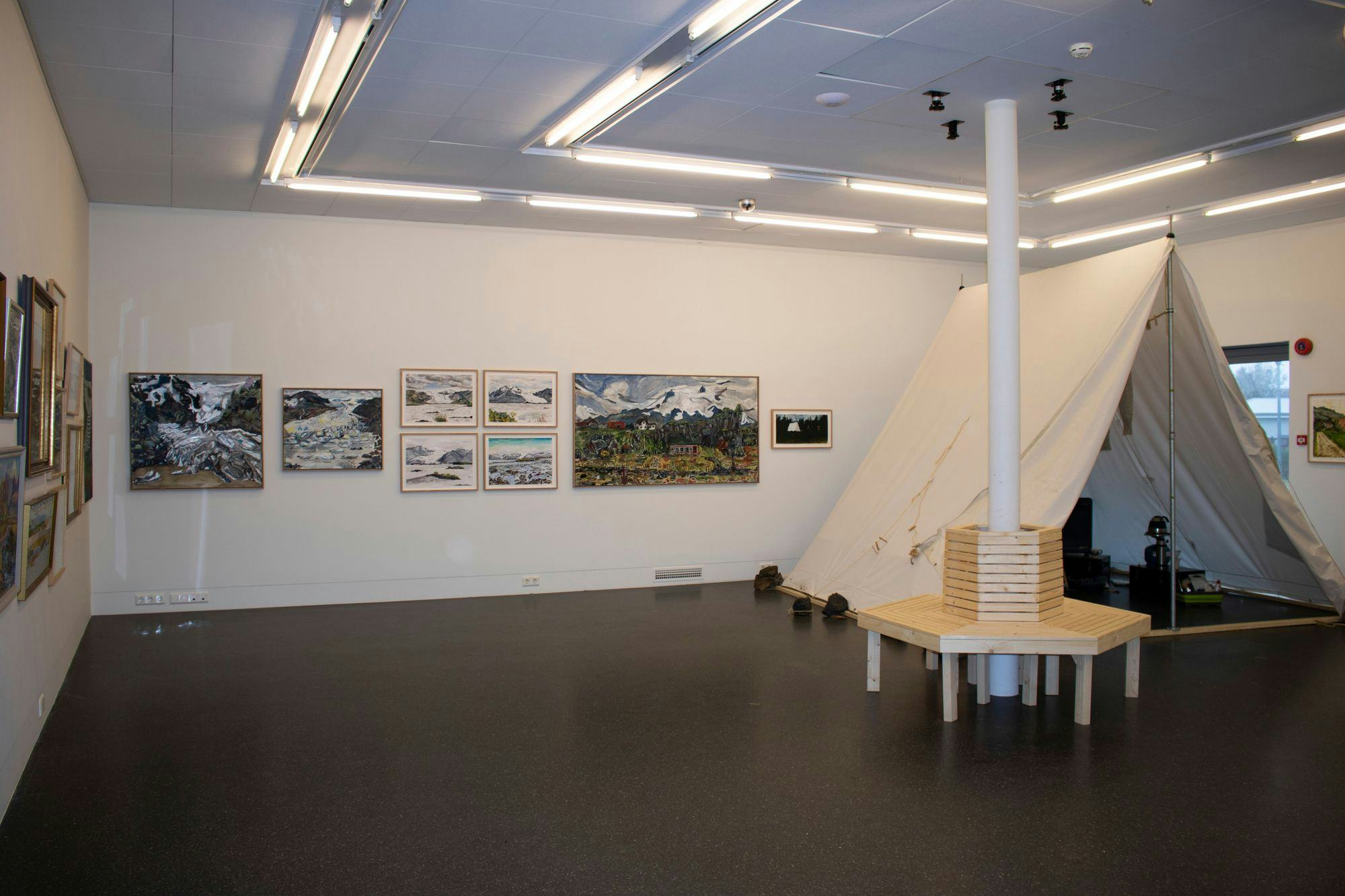
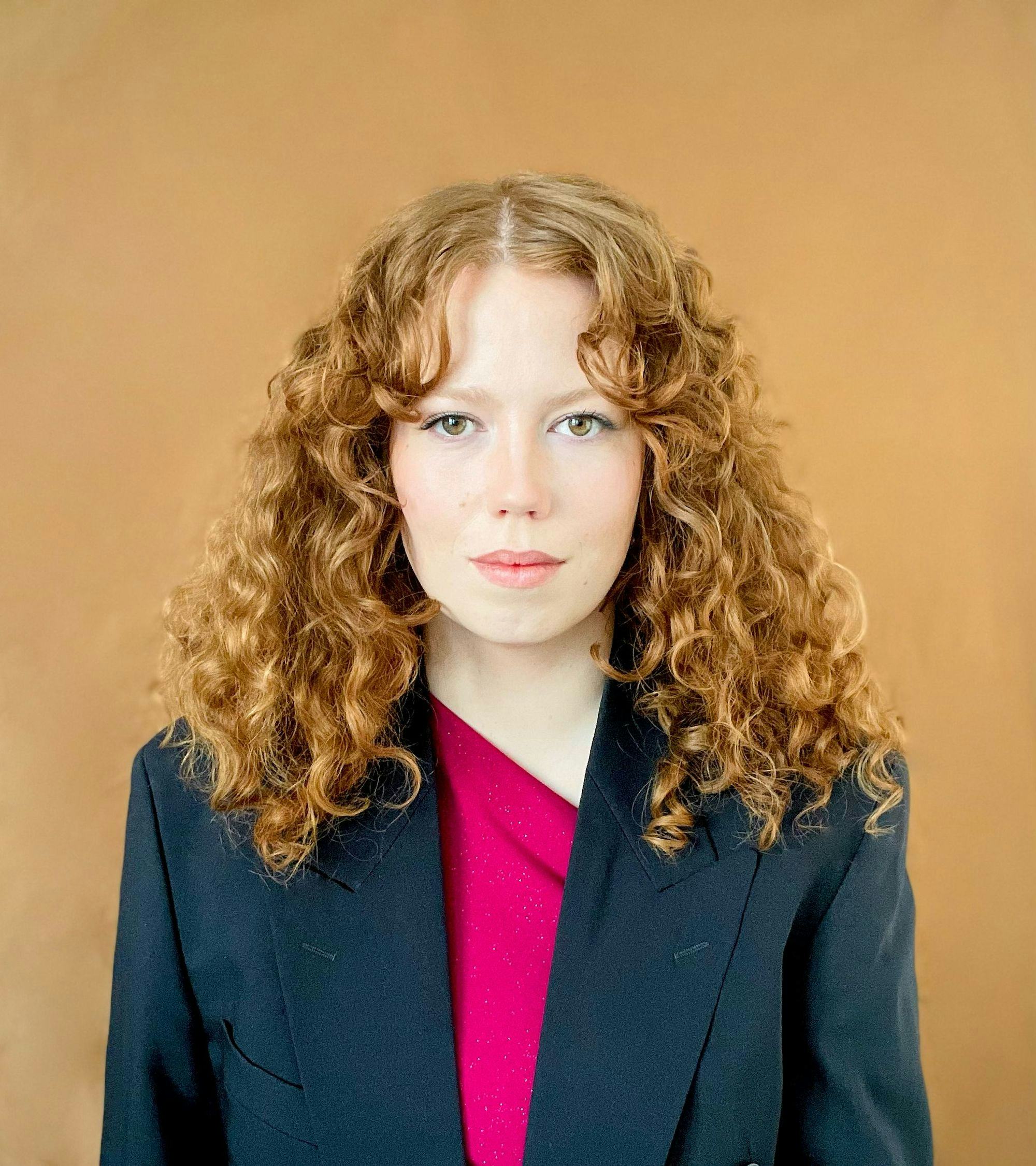
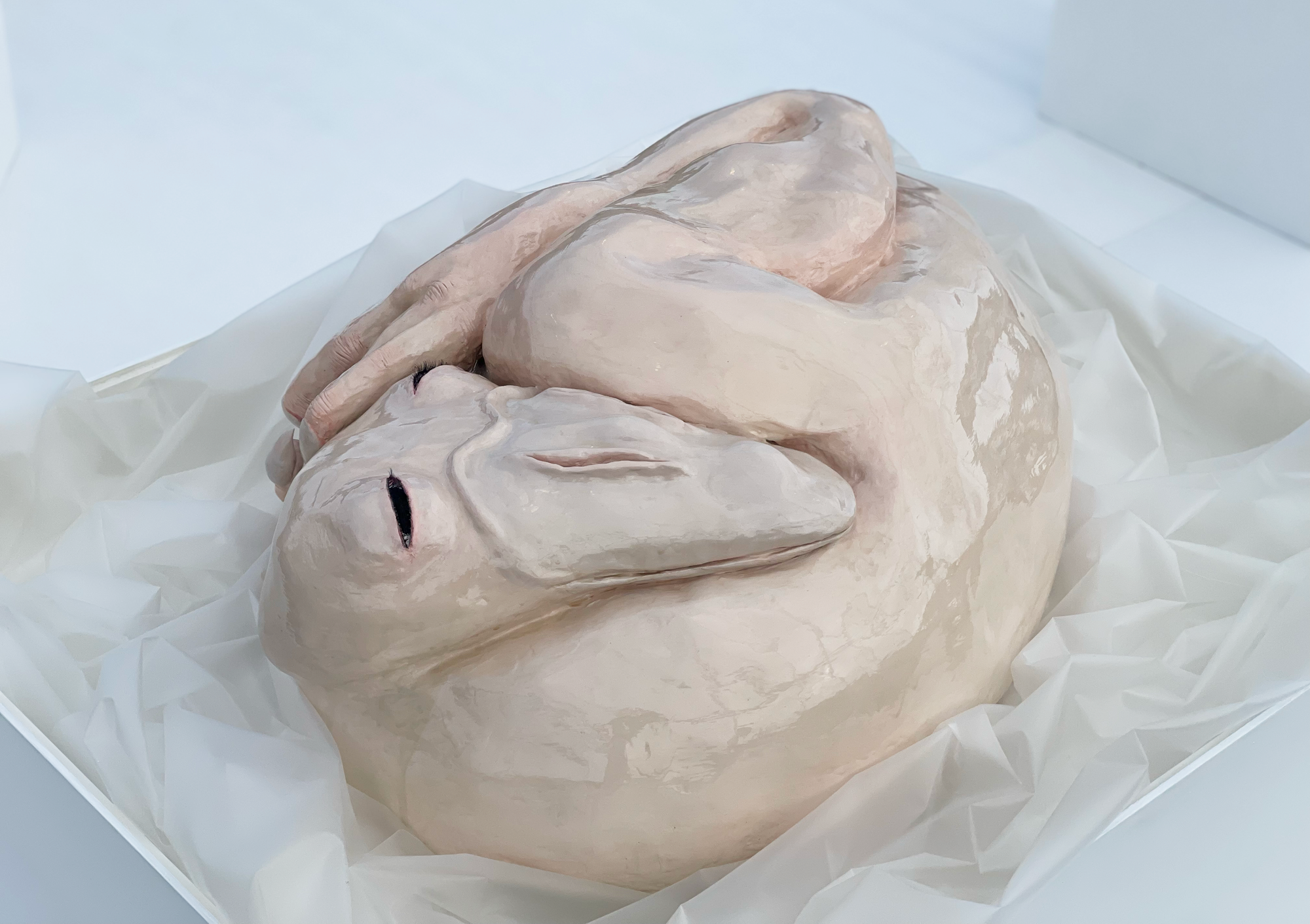
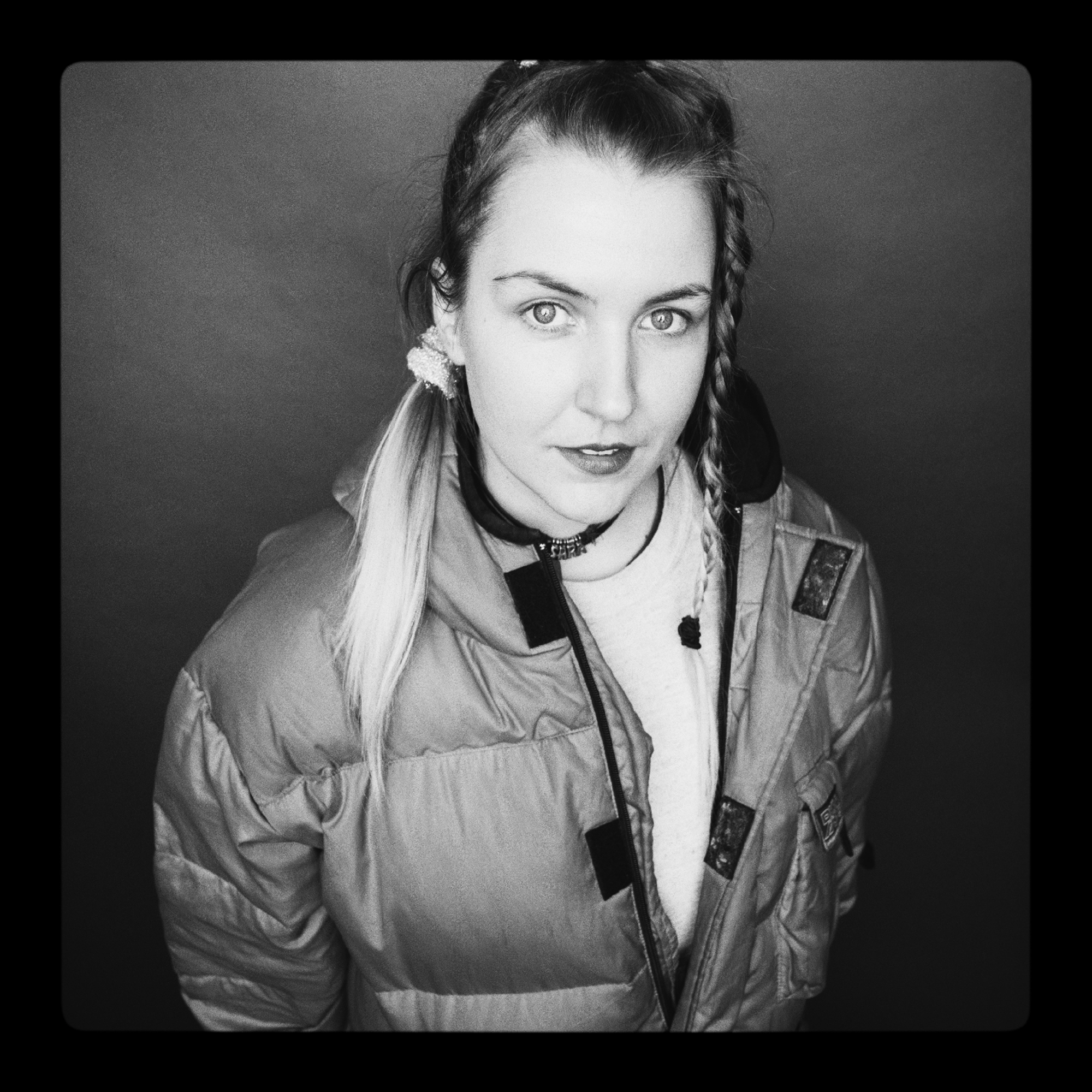
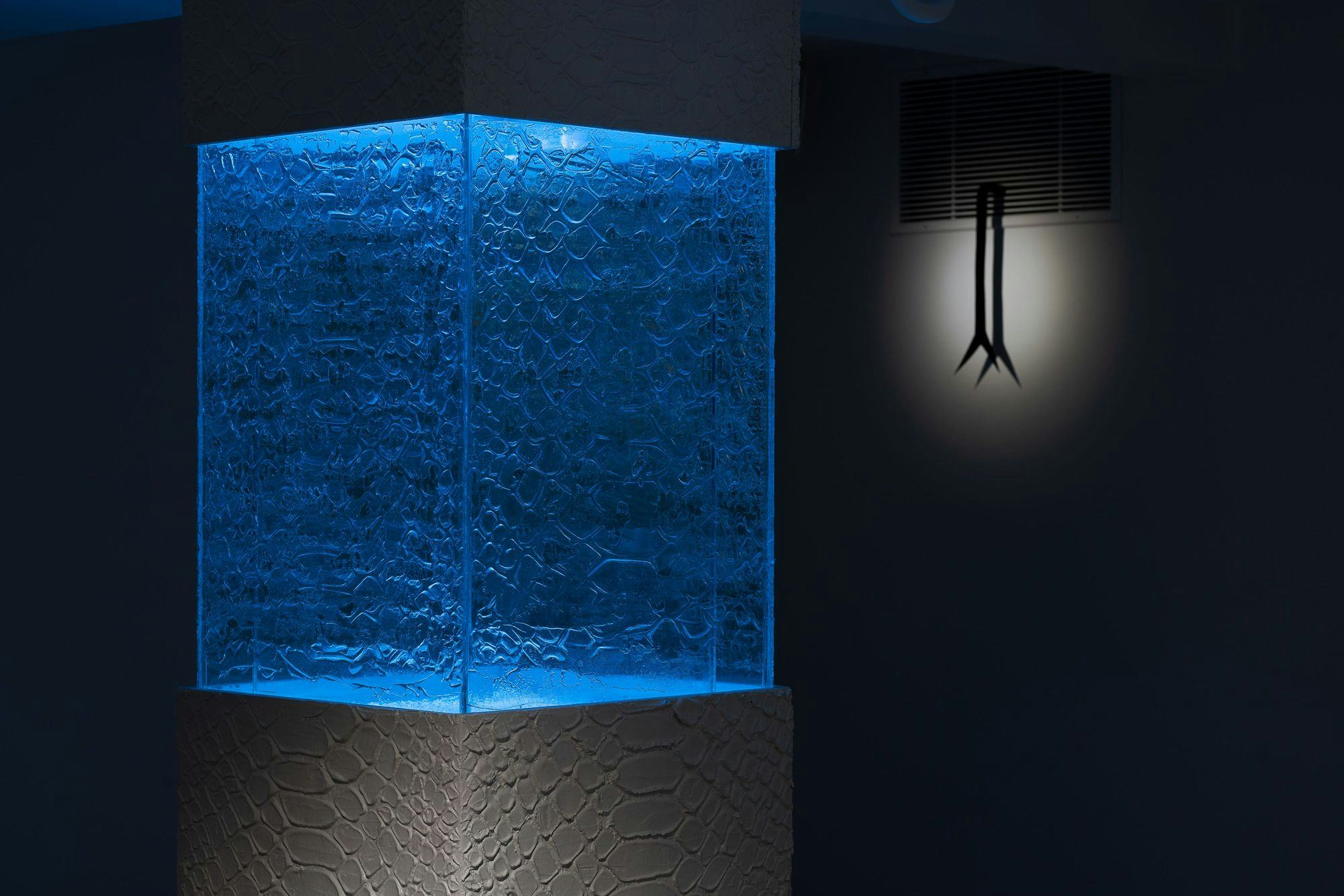
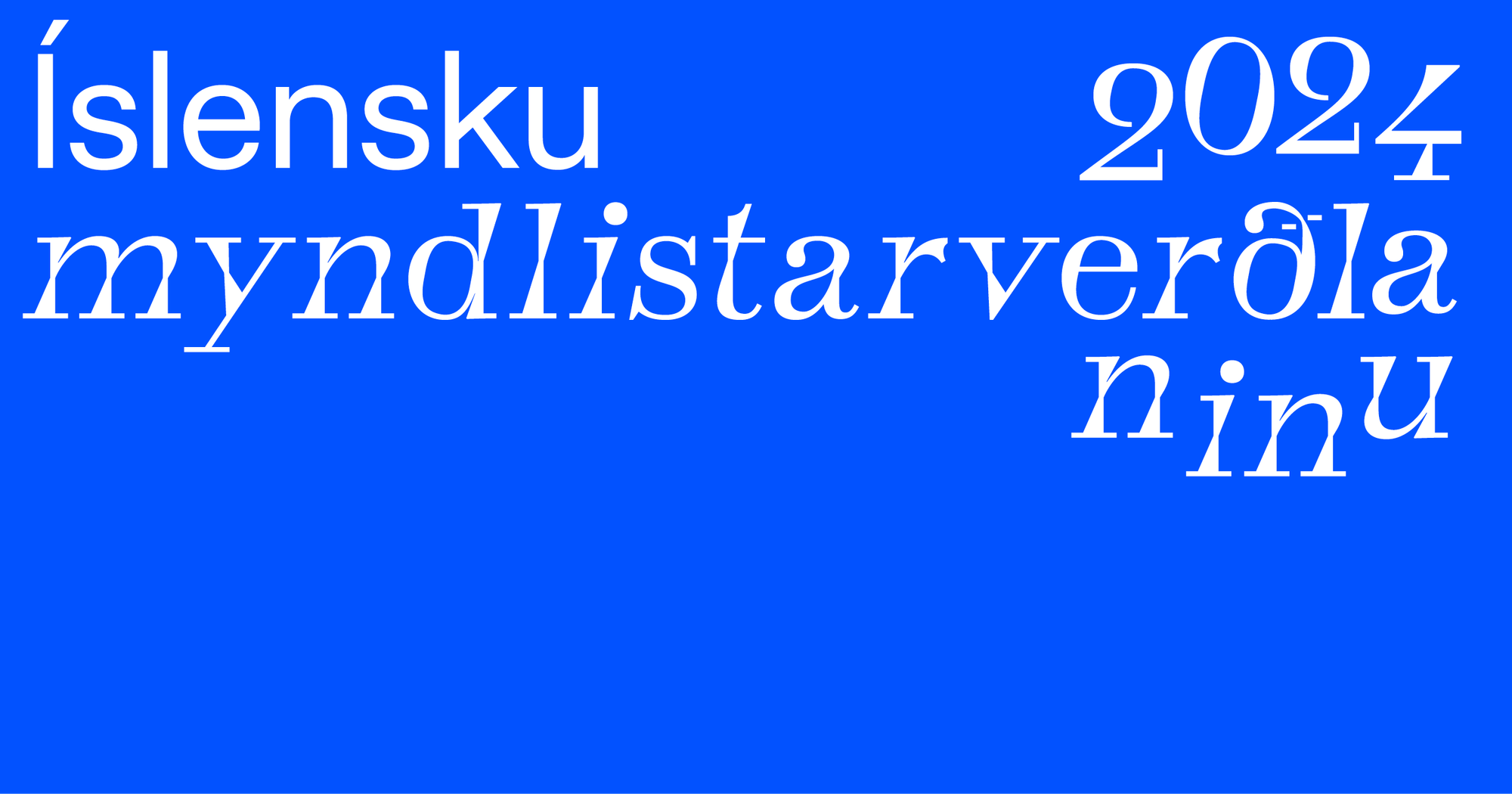
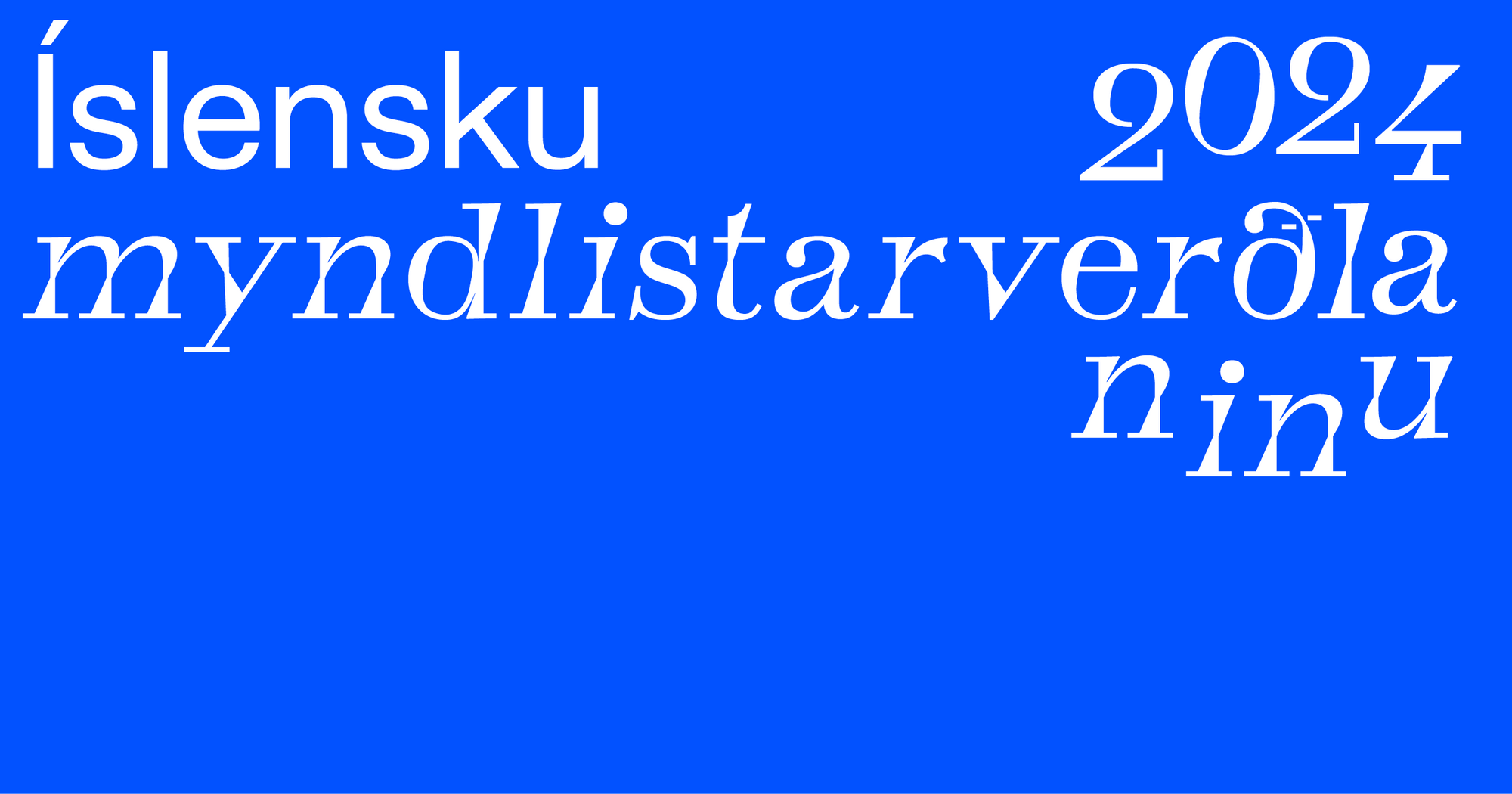
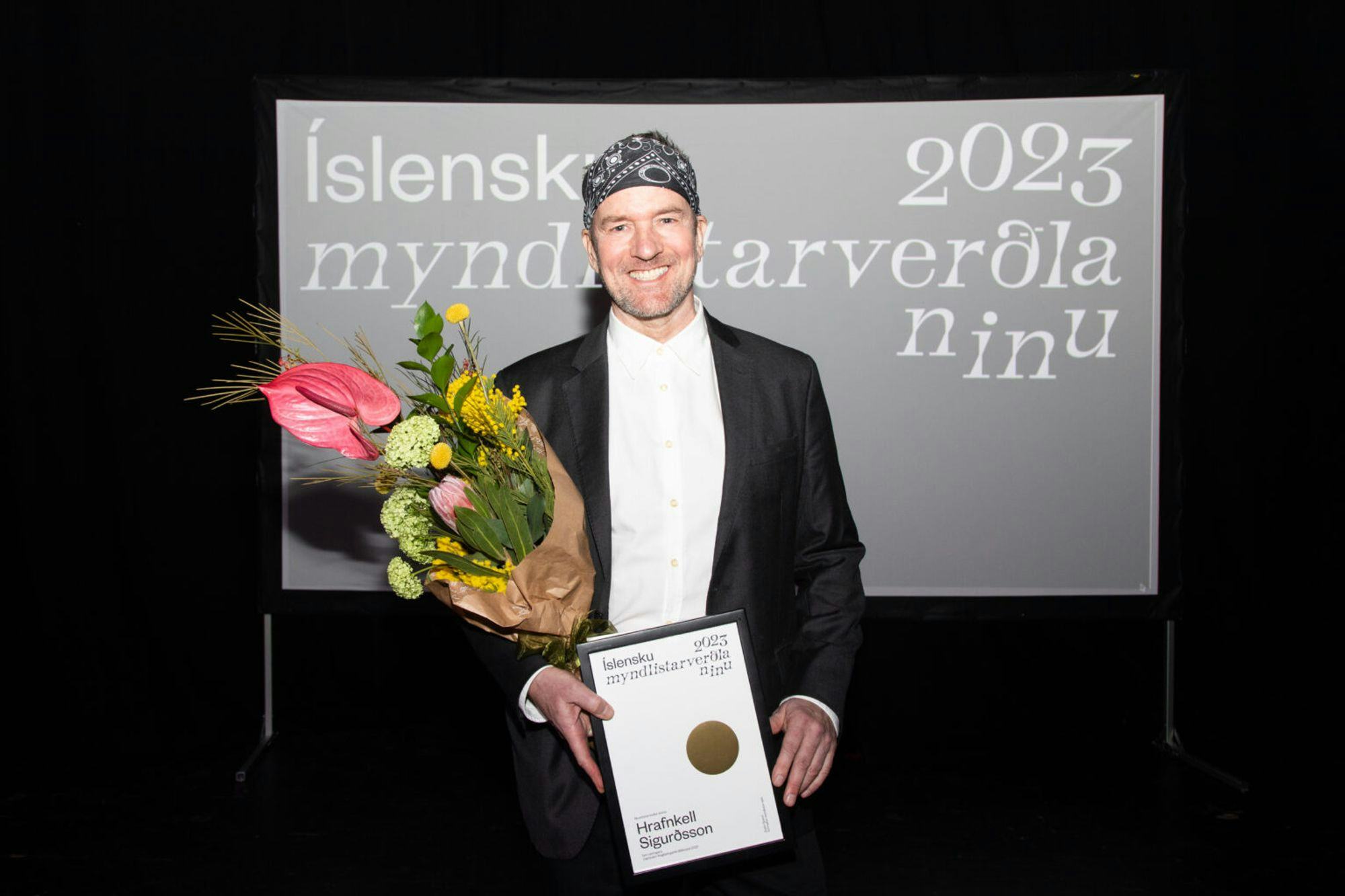
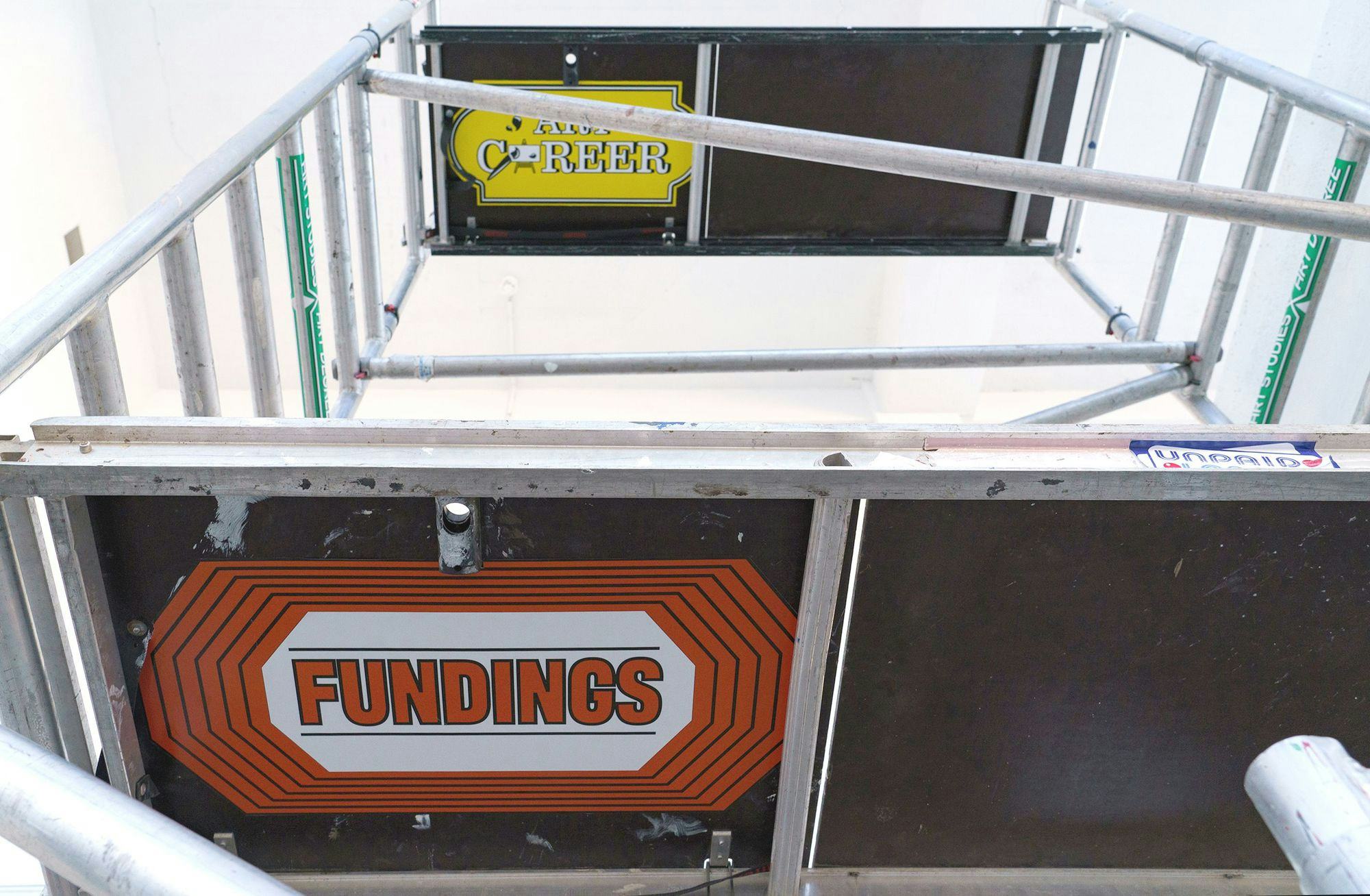
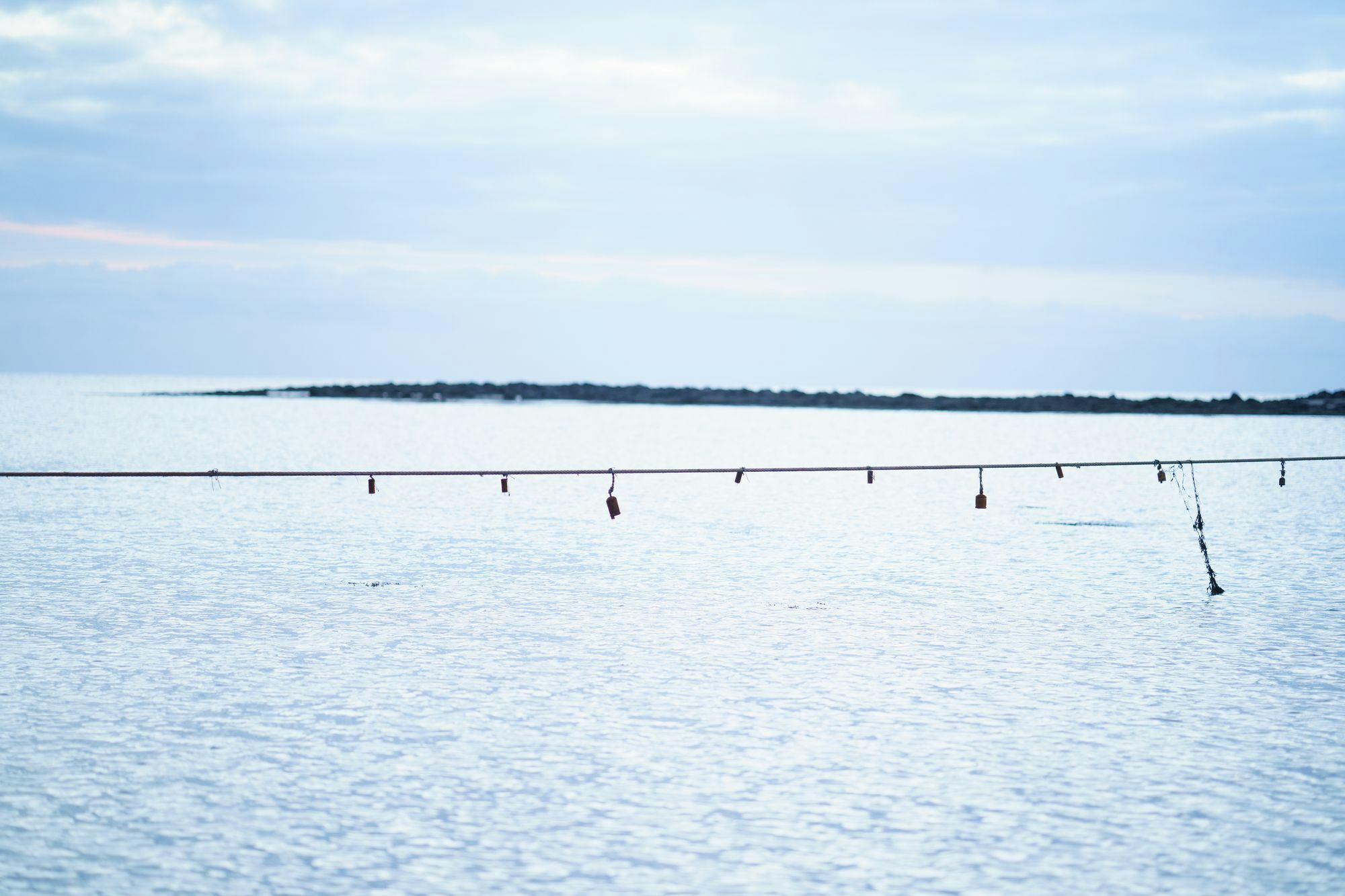
-icelandic-pavilion-2000x2667.jpg&w=2048&q=80)

